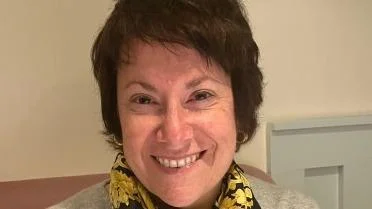Ann & Robert H. Lurie Children's Hospital of Chicago issued the following announcement on Dec. 6.
New this year – hunger made the top 10 list of social concerns for youth
Consistent with last year, Chicago parents again selected gun violence, bullying/cyberbullying and poverty as the top three social problems for children and adolescents in the city, according to the latest survey results released by Ann & Robert H. Lurie Children’s Hospital of Chicago and the Chicago Department of Public Health (CDPH). Hunger was new to this year’s top 10 list of social issues facing youth, with 62 percent of parents across all community areas in Chicago considering it a big problem.
“We are getting a loud and clear message from parents that gun violence, bullying and poverty remain the biggest social challenges for youth in Chicago,” says Matthew M. Davis, MD, MAPP, Interim Chair of Pediatrics and Chief of Community Health Transformation at Lurie Children’s, and Professor of Pediatrics, Medicine, Medical Social Sciences, and Preventive Medicine at Northwestern University Feinberg School of Medicine. “We must redouble our efforts in collaboration with community organizations to create workable solutions to these complex problems, as well as the other issues on the top 10 list.”
The top 10 list of social issues affecting children and adolescents as viewed by Chicago parents in the past two years include:
2018-2019
Gun Violence (85 percent)
Bullying/Cyberbullying (73 percent)
Poverty (70 percent)
Racial Disparities in Health (68 percent)
Racism and Discrimination (67 percent)
Social Media (66 percent)
Lack of Adult Supervision (64 percent)
Hunger (62 percent)
Not Enough Job Opportunities for Parents (60 percent)
Violence in Schools (60 percent)
2017-2018
Gun Violence (87 percent)
Bullying/Cyberbullying (76 percent)
Poverty (74 percent)
Lack of Adult Supervision (73 percent)
Racism and Discrimination (70 percent)
Racial Disparities in Health (69 percent)
Violence in Schools (68 percent)
Social Media (65 percent)
Not Enough Job Opportunities for Parents for Parents (65 percent)
Unsafe Housing (62 percent)
“We must prioritize tackling the social challenges that parents continue to specify, working with dedicated partners across the city on improving the social determinants of child health,” says CDPH Acting Commissioner Allison Arwady, MD, MPH. “We owe it to the youth of Chicago and their families.”
The city is taking many steps to address issues of violence, trauma, and related root causes such as poverty, particularly as it relates to youth. The Department of Family and Support Services has a Youth Services Division that offers a variety of services including educational supports, out of school enrichment activities and employment opportunities: https://www.chicago.gov/city/en/depts/fss/provdrs/youth.html. In addition, the Mayor’s 2020 proposed budget invests in a community-based safety infrastructure that is focused on the 15 communities with highest levels of violence.
The Chicago Department of Public Health has a portfolio of programs that are designed to prevent, interrupt and aid in the aftermath of violence and trauma in Chicago’s most challenged communities. CDPH believes that violence is preventable when collaborations are focused and responsive, and to that end has convened over 50 partnering organizations to inform the Community Safety strategies in its Healthy Chicago 2025 plan.
Survey results are based on the second wave of data collected through the Healthy Chicago Survey, Jr. (2018-19), that was developed by Dr. Davis in collaboration with the CDPH Office of Epidemiology and Research. Phone interviews were conducted with 2,982 adults, including 740 parents, December 2018 through May 2019. Households across Chicago were randomly selected, with participants in all 77 community areas.
To share the survey results, Dr. Davis and his team at Lurie Children’s launched “Voices of Child Health in Chicago,” a research program focused on bringing the perspectives of Chicagoans to inform dialogue and action about child health in the city. On a regular basis, data briefs are issued that report on a wide range of survey result topics that affect youth health.
Original source can be found here.






 Alerts Sign-up
Alerts Sign-up